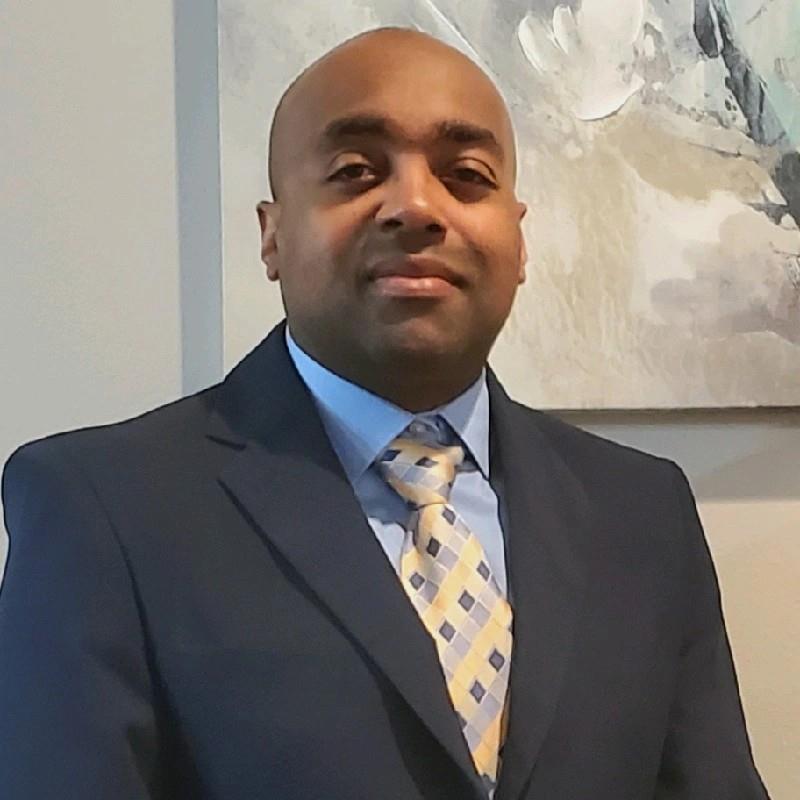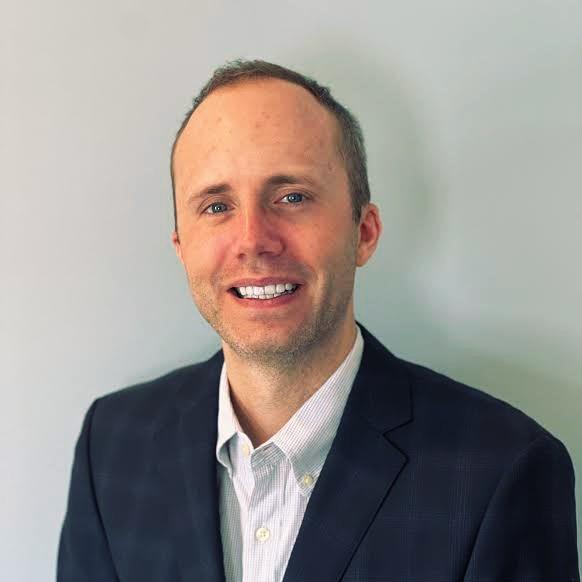Mastering The Medtech Game: Leadership, Attention, And Growth
In this episode, medtech marketer and MarketCraft founder Omar M. Khateeb joins Samuel to break down how early-stage and growth companies can engineer markets, not just chase attention. From mastering LinkedIn and expanding to X, Meta, and YouTube, to using storytelling that actually drives adoption, Omar shares how the best brands—like Zimmer Biomet and Intuitive—create influence through consistent, authentic leadership content. He reveals the psychology behind attention, the balance between value and unpredictability, and why depth beats surface-level posts every time. You’ll also hear how AI is reshaping content strategy, how to refine your voice without losing authenticity, and why strategic pauses can reignite engagement. Whether you’re a founder, marketer, or rep in medtech, this episode is your roadmap to building authority, trust, and momentum in a noisy digital world.
Connect with Omar M. Khateeb: LinkedIn
Connect with Me: LinkedIn
Love the show? Subscribe, rate, review, and share! Here’s How »
Watch the episode here:
Or Listen to it on your favorite platform:
Episode Transcript:
00:05 – Samuel Adeyinka (Host)
Hello and welcome to the Medical Sales Podcast. I’m your host, Samuel, founder of a revolutionary medical sales training and mentorship program called the Medical Sales Career Builder, and I’m also host of the Medical Sales Podcast. In this podcast, I interview top medical sales reps and leading medical sales executives across the entire world. It doesn’t matter what medical sales industry from medical device to pharmaceutical, to genetic testing and diagnostic lab you name it you will learn how to either break into the industry, be a top 10% performer within your role or climb the corporate ladder. Welcome to the Medical Sales Podcast and remember, I am a medical sales expert, sharing my own opinion about this amazing industry and how it can change your life. All right, what’s going on, Omar? How we doing.
00:53 – Omar M. Khateeb (Guest)
I’m doing well. I’m doing well, samuel. It’s a pleasure to be back. I know it’s been a while Time flies but like as always with good friendships, you kind of pick up from where you left off last.
01:01 – Samuel Adeyinka (Host)
Man, it’s amazing to see so much has happened. It’s been a good number of years since the last time I talked to you, but you know what? We have an audience that has all kinds of people listening. Why don’t you tell everybody who you are and what you do?
01:14 – Omar M. Khateeb (Guest)
Yeah, totally. So a little background on me. I mean, first and foremost, your team will probably cut that out, but I’m a proud husband and father soon proud husband and father soon to be two kids. So really good there.
01:26
Born and raised in Texas, on the US-American border, first generation American went to medical school in Texas, dropped out, went into the industry, carried the bag, started in surgical robotics, moved into marketing, worked in a lot of different companies and then I started my own business in 2022.
01:41
A lot of people know me from essentially, a digital selling course that I had, but a few years ago I decided that it was time for me to start solving bigger, more complicated and expensive problems, and now I have an agency. I don’t know if it’ll be it’ll probably not be ready by the time this episode comes out but you know the name of the company is MarketCraft. Our whole focus is on how do we engineer markets for companies to be successful around, and the company’s name is Marketcraft. You know our domain is marketcraftai because, as I was building the agency, we started training and leveraging AI from a very, very early time. So we still use that today in terms of training models for clients, but then also for our internal use as well, and so it’s a. You know we were talking about it earlier. I know that you guys use AI internally. It’s just a great time to be alive right now.
02:27 – Samuel Adeyinka (Host)
Yeah, no, I mean it’s it’s kind of wild. You know it’s funny. My last few episodes have been revolving around AI because it’s just, it’s just in your face, man, you can’t, can’t not talk about it because it’s part of everyday life. But let’s get into just the state of selling and promotion when it comes to med sales or med tech. So I want to talk about platforms. Right now you’re on LinkedIn, I’m on LinkedIn. When you’re thinking about companies that are trying to be seen, are you thinking LinkedIn? Are you thinking multi-channel? Talk to us about what are the opportunities out there for any med tech company that’s trying to scale.
03:06 – Omar M. Khateeb (Guest)
Yeah, and I’ll start. We work with different companies. Our sweet spot is, as I tell people, we live on the left side of the adoption curve, so we work with a lot of early stage companies, and so LinkedIn is the first place to start, for a few reasons. Linkedin is a place where guaranteed in med tech that is you’ll have all your investors and the people who are going to invest in you usually from angel investor all the way through seed stage and some growth capital. You have your strategics on there right. So if you’re trying to get acquired or trying to do some partnership, they’re on there, and then, for the most part, the market or customer base that you’re trying to sell to is on there as well being clinicians, surgeons. Now, not every single physician is on LinkedIn, and if they are on LinkedIn, that doesn’t mean they’re active, but a large majority growing majority of clinicians are starting to leverage LinkedIn LinkedIn for me.
03:57
I’m fortunate enough to have somewhat of a relationship informal relationship with LinkedIn corporate, and so I know that, coming out of 2020, their healthcare division was one of their biggest and fastest growing ones, and now they’re trying to invest more in growing that segment so that large med tech companies see the value in terms of storytelling on there to hospital administrators, surgeons, et cetera. And then, because LinkedIn’s owned by Microsoft, one, that thing’s not going away and they see that, as you know, linkedin does this, by the way, which is, they’ll buy a network, right, and not change it to Microsoft and allow that network to grow. Microsoft LinkedIn is one of those. They bought a few other online platforms and apps to do that, because their whole thing is like how do you create a network effect for their suite of products, right? And so, to answer your question kind of shortly, like, linkedin is the first place you want to start. It’s a place where you sort of develop that muscle about how do we create content and tell a story, et cetera, and then you transfer that to other places.
04:54
For most med tech companies, I would say like, after LinkedIn, x would be the next one, right, a lot of physicians use X when it comes to conference time, et cetera. And then, from there, I would say like being, you know, getting the handles, but starting to be active on Meta’s suite of businesses, so that would be Facebook, instagram and, of course, like, if they’re ready, like TikTok, you know, but I would say for most of our clients. It’s LinkedIn, then X and then Meta and, of course, like something that I don’t consider it social media, but it should be approached in a somewhat similar way as YouTube and leveraging not just YouTube videos but like YouTube shorts, et cetera.
05:29 – Samuel Adeyinka (Host)
So, when it comes to let’s start with LinkedIn who’s in med tech? Who’s taking advantage of that right now? Who’s just all over it? They’ve seen the value, they understand the value and they’re they’re running with it.
05:41 – Omar M. Khateeb (Guest)
Yeah, like I’ll, I’ll use, I’ll use some individuals and then I will, I will, I’ll use some companies. So like on the company side, that that everybody sees, I would say Zimmer Biomed is a great example of that. Ivan Tornos is probably I think I confirmed it that he’s probably the most active in terms of as a content creator who’s in a C-suite senior leadership level of like a fortune. I think they’re a Fortune 500. Definitely a Fortune 1000 company. Zimmer is one of those and Ivan Tornos is one Another one I’d say that does a really fantastic job.
06:13
Actually, probably my favorite in med tech is Intuitive. So Intuitive has a pretty active company handle. But I’ve noticed just in the last year, maybe the last two years, that their senior leaders like I can’t remember his name but Jason, who’s their head of global marketing, posts a lot on there, Henry Charlton, their chief commercial officer, or his executive vice president of marketing and sales I forget the titles, right, but they do a great job of storytelling and the storytelling that they do is twofold. One is from a brand standpoint of like, here’s the company culture that we have, what we’re doing with our employees, our suppliers, our, our customers, and the other side is that they do a good job of like marking their products. You know so, like anytime a new feature is released, for you know, one of their instruments is, even if it’s something as small as, like, haptic feedback. Like there’s a nice post explaining like why this is important. You know, and the idea is that, like you’re trying to engineer a market, you know when you engineer a market, you know the whole idea is how do you show up on a consistent basis?
07:12
Something that I always like to tell people and this is a good way to think about linkedin is it’s like working, it’s like you’re in good shape, I’m in good shape. So somebody comes and says, omar, what can I do to get in shape? The advice is actually very simple. It’s like don’t eat a lot and work out like on a daily basis. To some extent, like that’s very simple advice.
07:33
It’s not easy, though, sure it’s the same thing with linkedin content, which is you got to think about it as three frameworks, which is like number one how do you get attention right? How do you sustain that attention over time? And at the bottom, how do you layer on persuasion to either do a change in behavior in the marketplace, like I’m going to adopt this product, I’m going to do things differently, or to actually take an action. I’m going to take a meeting with this person right and you have to play that game on a daily, weekly basis. Like it’s not like. Like it’s. Everything’s gotten more competitive, know, and especially like now with AI, like anybody and their mother can make content. So it’s like not enough just to like make content you know yeah.
08:11
Yeah.
08:12 – Samuel Adeyinka (Host)
You know, with with you’re right, you can use AI to make content, but I still see that, when it comes to content creation and AI, just because AI I made it doesn’t mean it’s going to work.
08:26 – Omar M. Khateeb (Guest)
Totally A hundred percent. Yeah, a hundred a hundred percent. And and you know somebody, somebody who I really he was on my show.
08:33 – Samuel Adeyinka (Host)
I really respect him a lot and he’s, you know, he’s he’s built like a nine figure, while too he’s an og bro. Yeah but.
08:47 – Omar M. Khateeb (Guest)
But you know his team does like large-scale tests on a lot of things and they did show that, like, ai generated seo does outperform human generated seo, but human generated with ai refined seo. So, like, you come up with the idea use, use ai to refine it that actually performs the. But human generated with AI refined SEO. So, like you come up with the idea, use AI to refine it that actually performs the best. And so these things are going to change over time. So, like, right now, there’s enough saturation in the marketplace that algorithms and other things are able to recognize when something is just purely AI. Okay.
09:24 – Samuel Adeyinka (Host)
So when it comes to content, you know I love what you said earlier when you said you know you have to get attention first. What does it take to get attention From your perspective? How often do you have to be present? Let’s say you’re listening to this episode right now and you’re in a startup and you’re trying to figure out how do we get our company out there? How do we get seen? We’re on LinkedIn, we got our profile ready. How often should we be putting out content? How are we looking to get our content seen? How would you say you start?
09:53 – Omar M. Khateeb (Guest)
I mean, you know, for us on the client side what’s manageable and doable is to commit to doing at least three pieces of content a week, and then you add things on top of that. And you know, you asked about what does it take to get attention? Let’s, let’s understand first, like why, why does attention even exist? Attention exists because it is a, you know, lower brain brainstem function for survival, right, you know, if you’re, if you think about 1000 years ago and you’re in the wilderness, you know your attention is drawn to something that’s new, because something that’s new and not familiar usually is a threat and could kill you, right? And so that’s why, like even today, you know you can see how your brain has been programmed. It’s not, it hasn’t evolved, is that you can be walking in your neighborhood and everything’s fine, and all of a sudden you hear like some rustling of the leaves and all of a sudden you kind of like you jump right. You know there’s like no tiger or anything, but like, still, you know, and, and the way that attention works today is that like you’d be on the highway driving and let’s say there’s a billboard, you know you’ve never seen it, you pay attention to that billboard, but then, over a week or two, like it starts to phase out in the background, and so, if you think about what it takes to for a company, there’s these. There’s a balance between what’s the key message we want to hit on right, and this is goes to like not only defining a category, but like how do you own this thing Right? So, for example, if you are trying to own, like you want your brand and name to be attached to, let’s say, pulse field ablation for some very specific area, like you got to hit on that message constantly, over and over and, over and, over and over again, from all kinds of different angles, so that, when somebody thinks about pulse field ablation, like your brand comes up.
11:36
The other side of it, though, is that you have to vary it in a way, because you have to always figure out like okay, how do we get attention again? And this is why I tell CEOs and when we work with a company, our team does ghostwriting for the CEO, which is okay, yeah, we’re going to get you to talk about the company, we’ll post content there. But like, what about you as a leader? Like, what kind of books are you into, what kind of shows do you like, et cetera, because there has to be novel things that you post that catches somebody off guard and gets them to literally stop and pay attention. You know, and that’s why there’s this game you have to play of varied content, and the other side of it is that, like, could you come up with a formula to this? You could, but then this is this is you know.
12:18
Again, if you come with something formulaic, over time it’s predictable, right, and the more, the more predictable you become, the more people are just going to turn you off, right. That’s why, if you think about, like you know, some of the like really big brands out there, I mean, look, somebody who’s like a genius when it comes to attention and being like an energy monster Donald Trump and like Elon Musk, right, like they get it right. If you look at like Mark Zuckerberg, mark Zuckerberg is the CEO of a trillion dollar company. He still comes out on Instagram and does like a simple video of himself talking about a product release, but then on occasion, he’ll post something completely out of left field, like him wakeboarding with an American flag, like immediately, that draws your attention right At the end of the day. You know, attention is a very like ancient and metaphysical concept. Right, if you think about life, wherever you put attention, you’re going to get more of that. There’s, there’s an energy to that, you know, and this can translate to marketing and beyond.
13:16 – Samuel Adeyinka (Host)
I hope you’re enjoying today’s episode and I want to let you know our programs cover the entire career of a medical sales professional, from getting into the medical sales industry to training on how to be a top performer in the medical sales industry, to masterfully navigating your career to executive level leadership. These programs are personalized and customized for your specific career and background and trained by over 50 experts, including surgeons. Our results speak for ourselves and we’re landing positions for our candidates in less than 120 days in top medical technology companies like Stryker, medtronic, merck, abbott you name it. Would you run an Ironman race without training and a strategy? You wouldn’t, so why are you trying to do the same with a medical sales position? You need training, you need a strategy and you need to visit evolveyoursuccesscom. Fill out the application schedule some time with one of our account executives and let’s get you into the position that you’ve always dreamed of.
14:13
In this day and age, it seems like what it takes to get attention is the craziest stuff you’ve ever seen. You kind of brought it up, actually, donald Trump. I mean the things that he says and does. It’s shocking, right, and when you think about how he got to where he is, it’s because of the things he initially started with. That added a lot of shock value. Many people say, whoa, what the heck is this guy talking about? Doubled down, found an audience and then grew with it. Elon Musk same example. And then you mentioned Mark Zuckerberg. But these guys, these examples you used, they had amazing things they were already doing. I mean, elon Musk took over Tesla and turned it into a billion-dollar brand. Zuckerberg had Facebook, which was already hot before he ever opened his mouth, and Donald Trump had a reputation long before he decided to do what he’s doing today. But what if you’re that person that has nothing right and you have this company or you started this startup that no one knows about and you’re trying to get that attention that Elon and Zuckerberg and Trump clearly have? Now, how you know, those guys already had something to bring to the table where, even before they opened their mouth, people were curious about what do they have to say? Right, let’s talk about Donald Trump. When Donald Trump first went for presidency and opened his mouth, people were paying attention because they were like what is he going to say? And then he delivered with something shocking and racy and then people were like whoa, and it took off.
15:37
But if you’re unknown, if nobody knows who you are, what you’re about, what you’re trying to do, when you have this thing you want to bring to the world, how do you do it? What kind of content do you put out there to just shake things up? And as you answer that, I want to add just a little bit of more context to it. You mentioned ablation and being consistent, so that when people think of ablation they think of you, but you and I know there’s content creators out there that they’re always present and they never really get a lot of volume. It’s just kind of there and, like you said, it’s kind of tuned out. How do you avoid becoming that especially kind of there? And, and, like you said, it’s kind of tuned out, how do you avoid becoming that, especially when you’re brand new and you do not have something big that you’ve been working on that people know about and you’re just unknown?
16:18 – Omar M. Khateeb (Guest)
yeah. So I’m going to answer in context of linkedin and then I’ll kind of expand from this. So, like, on the context of linkedin, the algorithm does a really good job of figuring out who this content should go in front of, based on the text that you use, the images, etc. Right, and so sometimes, like you don’t just have to like put out content for the sake of being like racy and get attention and everything right. So again, some part and this is the thing about linkedin compared to other platforms, like linkedin, the community on there, like it’s a different community they’re looking for. They’re looking for like ways that you can devalue it.
16:51
Well, yeah, and value, yeah, but but on occasion, like you do have to think about like how do you, you know, as this common phrase is used, like pattern disrupt, right, and so the the other side of is that, like you can’t be like predictable, right, if you want to get like something that’s that can get attention is unpredictability. So I’ll use myself, for example, on my own show. I’m kind of unpredictable on my unpredictable on my own show, right, that’s what like has drawn a big audience. Ray cohen, investor of axonics, had a 3.7 billion dollar exit. He wasn’t the biggest exit who’s been on my show, but when he shows up on my podcast, you know I I think we’re going to do like a third one soon. Like, the audience loves him because Ray’s kind of unpredictable.
17:37 – Samuel Adeyinka (Host)
Yeah, you don’t know what he’s going to say next, sure.
17:40 – Omar M. Khateeb (Guest)
Yeah, exactly, and so, like, as a founder, like you can tell a story, tell a story, but, like, you have to think of some unique ways of like. How do I, how do I like, get somebody’s attention and bring them in, like? I’ll give you a great example on Twitter or X. I’m sorry, you know I started writing more threads. You know I have a goal to grow on there. Okay, so I’ve been doing these viral threads. It took some time. It’s not like, growing on x is not easy. So one of my threads got five million views and it was about the 48 laws of power.
18:15
A lot of people have read that book, some people have not, but it was familiar enough where somebody might see and say, oh, I’ve read that book, what’s this guy saying about it? Right, and then people want to contribute to it, etc. Like, there’s all kinds of ways to essentially get attention. You can get attention on linkedin, which, which, by the way, if you look at oh God, I forgot his name Vander Vanderbloom. He’s the guy who develops, in my opinion, the best annual algorithm report, but it isn’t you have to pay for it, for his algorithm report. It showed that like, which I noticed this a year ago as well that you know, linkedin started weighing, valuing comments more.
18:49
So my good friend, chris Walker, built one of the best demand gen agencies in SaaS. He built his brand, actually accelerated it, just through really long, thoughtful but also provocative comments, right, sure, sure. And so that’s another way. And so, again, you gotta think about it as a game of not just putting out content, but how do I go and jump on it? You look at, like, what big influencers do on x, like they’ll go and comment on each other’s stuff. Right, they’re trying to be that first comment. So, again, like it’s a game, it’s a game at the end of the day. But again, like this is where you have to test and try things right, and sometimes you know, for a founder a lot of founders I work with they’re they’re technical and they’re a little bit introverted, so like it’s kind of intense to put out your content, your own stuff.
19:33
It’s a lot for them to kind of come out and put anything out there it’s, it’s a lot, and what I tell people is like, look, the best thing to do is like not to think about like hundreds or thousands of people and like will this work or something. My recommendation is to think about like who’s like one. That’s what I would start. Sometimes, like, I create content because I’m like you know, I think this is really interesting. Sometimes those pieces do well, sometimes they don’t. When they don’t do well, I don’t give up on it.
19:56
So, like you know, I’m a, I’m a software, I’m a co-founder of a software company. So we use we developed Omnicreatorclub, and not just for content management on LinkedIn, but so it’s easier to kind of look at your data and say and actually, this is, you know, my co-founder may not like that I’m announcing this, but like, this is where we we’re rolling out an agentic. We have AI built into it, but we’re rolling an agentic version of it where it can go back and look at past posts that did not perform really well but that should be tried again and maybe in a different way. Right, you know, and so so you just you just like never know, right, like like, for example, I can tell you right now you can have put. You could have posted the like best piece of content ever on x on on wednesday of this week. Ain’t nobody engaging with it because, like you know, very tragically, you know, charlie kirk was killed you know like that.
20:49 – Samuel Adeyinka (Host)
That’s all anybody wants to pay attention to. It’s dominating everything.
20:52 – Omar M. Khateeb (Guest)
Yeah, it’s dominating everything Exactly, and so you have to take that into context. There’s seasonality to things. There’s all these things. I mean, look, on the algorithm side, this whole golden hour of the algorithm is kind of dead, like where, oh, if you post during these times, this is when it’s the best time to post. That’s kind of dead, like where, oh, if you post during these times, this is when it’s the best time post. That’s kind of dead. We still, for our clients, post during those times. That’s when we know that they’re logged on and that’s what they prefer. But, like, the algorithm will do a better job, does a better job these days on all platforms of serving and you know, season out, seasonality, what’s going on with things, etc. And this is why it’s.
21:26
This is a game. Look like I have the number one podcast in all of medtech. I have all these guests that come on. I still have to put out content. I still have to do all these things, do my newsletter, everything. It’s a game. I’m not competing with just you know, agency owners at medtech. I’m competing with, like everybody, including like jake paul and these big brands. I think, because all these people all are vying for like the same thing that I’m trying to get attention right, right, you know, I think it, it, you know.
21:55 – Samuel Adeyinka (Host)
Once upon a time I used to think, man, you know, when we get to be a big brand and the podcast has all these episodes, it’s just going to be easy and just put on autopilot and just make the episodes. You don’t have to do much else as far as promotion, only to learn that to your point, the bigger you get, the more you have to do.
22:12 – Omar M. Khateeb (Guest)
Yeah, leveling up into a different stratosphere of of pride for people’s attention and I’ll tell you like I think no matter who’s listening to this podcast in your audience, I think everybody would benefit a lot if they read the 48 laws of power. There’s a pocket version that you can start with. There’s the like, you know, if you’re, if you’re really serious, like go with the full version. But you can start with just going online and looking up the 48 laws of power summary and kind of reviewing those laws, like there’s a law in there that you, you should not be seen or accessible all the time. Again, there’s this idea of mystery.
22:45
Somebody who did this extremely well is like michael jackson.
22:48
Right, michael jackson would like release a hit hit record or something, and then he would like disappear from public life for like a year or two.
22:56
You know, I’m not saying to your audience like if you’re a founder, like disappear for a year or two, but like maybe you disappear for like a week or two, you don’t post anything, right, people like some people may want to be like yeah, I used to see that guy posting and I’ve done this myself Like I I remember a year ago or two. It was kind of coincidental, but I was like I wonder if that law of power really works. So, like I didn’t post for like I think a solid week and I, you know, I I post multiple times a week and I think, yeah, like a board member actually texted me and he’s like is everything okay? And then I was like, oh man, am I in trouble? And I messaged him. I was like, hey, yeah, everything’s fine. When he’s like, oh, he’s like I just haven’t seen anything. I haven’t seen you on my feed for like a week and I’m used to seeing you and I just I was wondering what was going on.
23:46 – Samuel Adeyinka (Host)
So, like you know, that guy took action saying you can do things like that after you’ve reached a certain level. Or are you saying no matter, even if you’re new to the game and you’re trying to build your brand, take time off.
24:00 – Omar M. Khateeb (Guest)
Yeah, take time off, and sometimes you need to. You can tell people who haven’t taken time off because it’s just like the same old, tired point of view and content, right, and so sometimes, like, you need to do that. That’s why I think it’s good to, you know, sometimes, batch content. You know, I use omni creator to do that, which is just to schedule things out and be done, and then, like throughout the week, I’ll come up with some ideas and everything. But, like, yeah, there’s, there’s, like you know, there’s, there’s a science to social media and attention or anything, but there’s like sort of an art to it as well. Right, like there, there are things that I don’t know why they did so well, right, could it be that I did a good job, you know, hacking the algorithm that week?
24:42
Maybe it could be that I tapped into something deeper, into like a collective subconscious thing, like I don’t know, maybe, but yeah, it’s, it’s a game, man, it’s a game and this is why I think the people who are the best are the ones who have like a lot of energy for it. They’re curious, right, they, they enjoy it. If you see it as a drag, like you’re never gonna be good at it, you know, like, like, like, like. I think you know, if you look at people who are really good at it, like some of the YouTubers, they bring a certain energy to it. That being said, I would also say that not enough people go deep these days. There’s a lot of surface-level BS out there, a lot of it, and people are losing this capacity to.
25:24 – Samuel Adeyinka (Host)
Give us an example. Give us an example of what deep looks like versus surface-level BS.
25:31 – Omar M. Khateeb (Guest)
I mean like like okay, I’ve been, I’ve been writing more about attention and awareness, right. So, like every like two bit marketer is like, oh, you got to get attention. It’s like, okay, what does that mean? Why is that important? What like like metaphysically, psychologically, physiologically, why is that important, you know? And so, and again, like I, you know, for my company now market craft, like that’s a big deal, and so, like the other day, you know, I put I put out a post about our Slack channel. I created a wins column, right, and so I was like there’s a really deep metaphysical reason as to why I have a wins column right. Where you put a lot of energy and focus right, you’ll perceive more of those kind of things, right. That’s where you’re going to start training your brain to scan for right. There’s a reason why I’m putting wins on there. It’s not just to feel good. These are the kind of things I want my team to put energy and attention on. If you start honing your attention to every little thing that’s going right, that’s progressing you forward, you’re going to be able to do that more and more and more. If you look at your own life, a lot of times when people are down on their luck. It’s because the only thing they’ve put attention on is how every single thing is going wrong. Sure, and then you get more of that because essentially you’re, you’re subconsciously training yourself. Sure, put attention on those kind of things. Sure, right, and so the like simple things like that.
26:59
Again, marketers didn’t go to go deep on it. If you think about copywriting, like, okay, copywriting, copywriting is important. Why is it important? Like, what are the different levels of copywriting? You know, not enough people go deep and again, this is this is where, like, it’s a, it’s a benefit. Now, there’s a lot of people who are putting out content. Everybody’s still like very surface level. Right, you know, I’ll see a post on linkedin from you know some. You know people that you and I know they’ll talk about some concept and they’ll they’ll write this like super long post where it’s just a bunch of words and they they’re not like actually going deep in the topic. They made it look like they went deep in the topic, but you read two lines into it and you’re like you know, there’s there’s no depth to it.
27:43 – Samuel Adeyinka (Host)
You know, that’s that’s interesting, because I think one of the fascinating things about especially, because I think one of the fascinating things about especially and we’ll stay on LinkedIn. Yeah, when you go to content, I love what you said earlier. You said sometimes, samuel, I see content, I make content, even, and I don’t know why I did well and I’ll see content that really performs and I’ll look at what’s said and I’m like, huh, that’s a pretty general thing. However, however, I can see how everybody gets it. Everybody gets it right, everybody. What was just said is basic, it’s general, but it’s real and everybody gets it.
28:21
And then I’ll see other content that doesn’t perform very well and I’m like, wow, that was deep, that was that explained a whole new level of thinking, but it’s just not catching land. A whole new level of thinking, but it’s just not catching. So, on that note, how do you decipher? You’re saying people should go deep, but I guess it calls into question what determines good content. Is it the number of likes and just the visibility alone that says, okay, that was a great piece of content, or is it that you should be paying attention to some other driver to determine if it’s even a good piece of content.
28:48
Let’s start there. I hope you enjoyed today’s episode and remember I have a customized and personalized program that gets you into the medical technology industry as a sales professional or any type of role for that matter. Become a top performer in your position and masterfully navigate your career to executive level leadership. Check out these programs and learn more at EvolvesAssesscom by visiting our site, filling out an application schedule, some time with one of our account executives and allowing us to get you where you need to be. Stay tuned for more awesome content with amazing interviews on the Medical Sales Podcast.



























































































